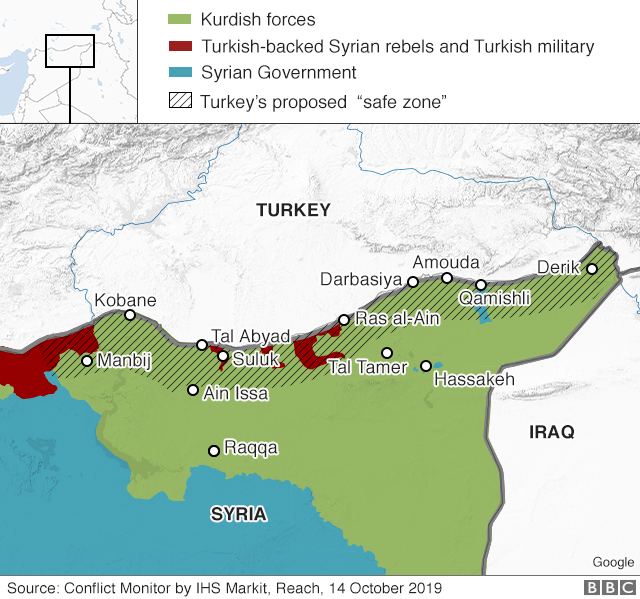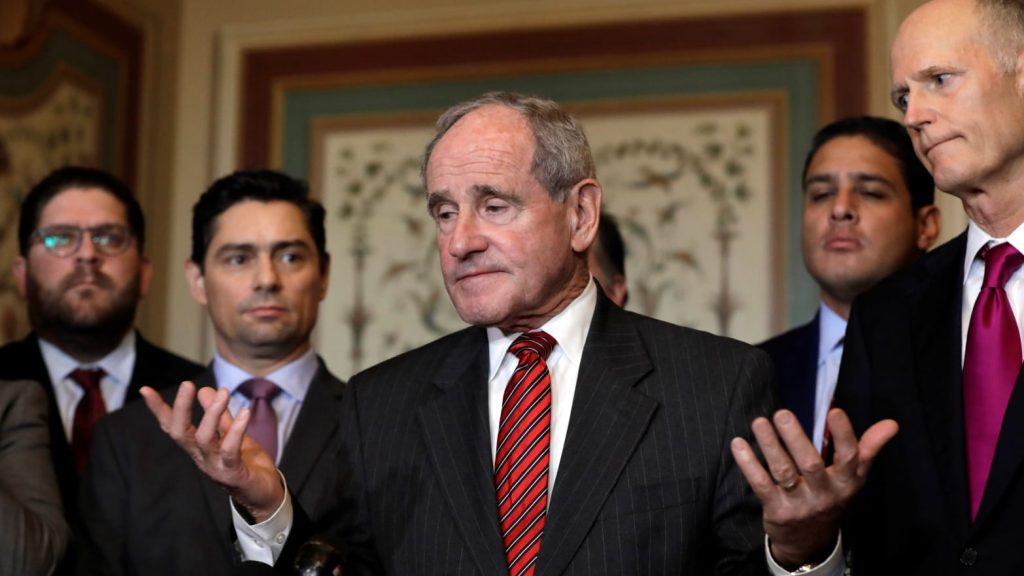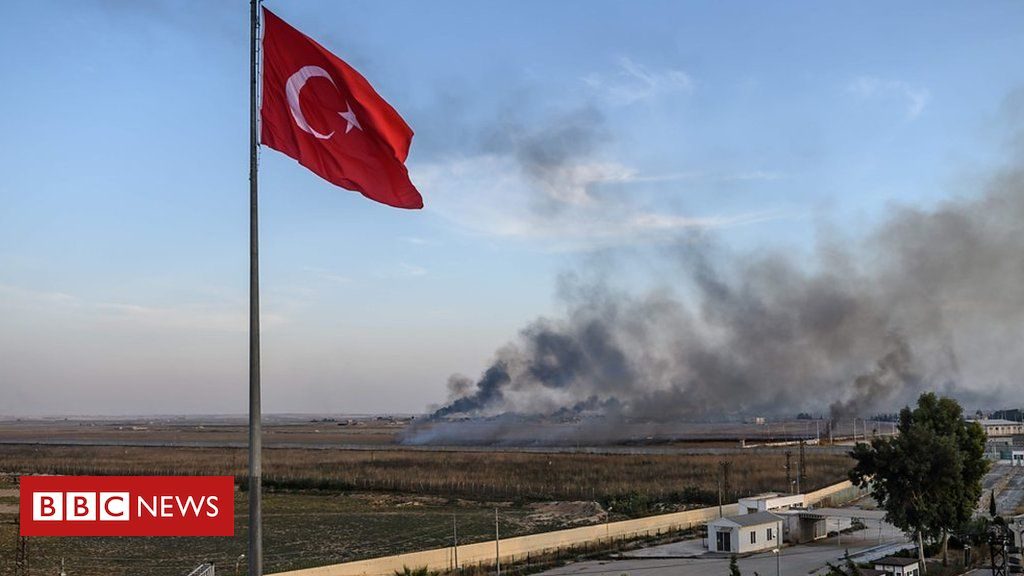On April 6, 2017 President Donald Trump ordered a cruise missile strike on airfields in Syria in response to Syrian dictator Basher al-Assad’s use of chemical weapons. Idaho Senator Jim Risch immediately praised Trump’s action as “a game changer” that signaled a new American approach to the entire Middle East and would impress the international community.
“The airstrikes of April 6 were a good first step,” Risch wrote the next day in piece in TIME, “but the United States must go further to push back against Assad and his allies, Russia and Iran. This will require a more comprehensive strategy toward Syria.”

Risch went on: “We also need to build and support a coalition that can effectively ensure the safety of Syrians at home and ensure neither Assad nor the Islamic State can destabilize the country. This would include working with our Turkish allies and Syrian opposition, and supporting Kurdish forces fighting on the ground against both the Islamic State and Assad’s forces.”
The senator, now the chairman of the Foreign Relations Committee, assured us that the “Trump Administration has proven to the people of Syria, and the world, that the United States is once again willing to confront growing instability and inhumanity.”
Of course, Risch could not have been more wrong as events of the last week gruesomely prove. In fact Risch has displayed a stunning combination of ignorance and arrogance over the last two and half years in his unconditional support for the administration’s persistently failing foreign policy.
Not only has Risch been wrong about Syria, but also about Iran, North Korea, China and a dozen other places where the chaotic and feckless Trump foreign policy has produced one disaster after another, fracturing what is left of U.S. global leadership, strengthening Russia, creating the opening for a revived ISSI, weakening NATO and leaving America increasingly without dependable friends in the world.

Perhaps never before in Idaho political history has one member of the state’s congressional delegation been in such a position of potential power and influence at such a perilous time and squandered it all in subservience to a failed president. It is simply a shocking display of political and moral misconduct.
Risch has made much of his access to the president, regularly bragging about his phone calls, briefings and ability to influence Trump. As Risch told the Idaho Press’s Betsy Russell recently he intends to maintain influence with Trump by never uttering a public criticism. Well, if Risch’s logic is correct and he is only able to exert influence over U.S. foreign policy by not exercising independent leadership then he also owns the outcome of Trump’s disastrous policy.
We should assume that Risch is in the group that David Sanger, the New York Times national security correspondent, wrote about this week. “Mr. Trump ignored months of warnings from his advisers about what calamities likely would ensue if he followed his instincts to pull back from Syria and abandon America’s longtime allies, the Kurds. He had no Plan B, other than to leave.”
Among the many Trumpian disasters arising from the precipitous decision to cut a run on the Kurds in Syria is the opportunity it affords Vladimir Putin to obtain what every Russian leader since Stalin has desired – a lead role in the Middle East.
“Putin continues to get whatever he wants and generally doesn’t even have to do much,” said a NATO official quoted by the Washington Post. “He got to sit back and watch the Turks and the Americans unravel five years of success and not only did it not cost him anything, he didn’t even have to try to make it happen. Small wonder he’d interfere on Trump’s side in an election.”
And here is Martin Indyk, a two-time U.S. ambassador to Israel, writing this week in Foreign Policy: “The Trump administration likes to see itself as clear-eyed and tough-minded, a confronter of the hard truths others refuse to acknowledge. In fact, it understands so little about how the Middle East actually works that its bungling efforts have been a failure across the board. As so often in the past, the cynical locals are manipulating a clueless outsider, advancing their personal agendas at the naive Americans’ expense.”
“So, Turkey and the Kurds have been fighting for hundreds of years,” Trump said this week. “We are out of there.” That may well turn out to be “the Trump Doctrine.”
For days the junior senator from Idaho said exactly nothing beyond an innocuous, boilerplate statement of “serious concern” about Turkey’s invasion of Syria in the wake of U.S. troop departures. By week’s end he was promising to introduce “soon” legislation to sanction Turkey, but without acknowledgment that the president himself had made such legislation necessary.

Meanwhile, daily revelations about Ukraine continue, a scandal that one commentator reduced to its essence: “The president’s personal lawyer was paid by crooked businessmen from a foreign country, and then the president gave him authority over American policy toward that country. This is precisely what the founders meant by ‘high crimes and misdemeanors.’” Risch has not answered a demand from Democratic members of his committee that he hold hearings on this debacle and he dodges questions about his views.
When Boise State Public Radio reporter Heath Druzin attempted last week to ask Risch about the appropriateness of an American president asking a foreign leader to gin up dirt on a political opponent, Risch refused to engage. “I’m not going there,” he said before walking away and then adding “Don’t do that again.”
In a subsequent interview with KBOI Radio’s Nate Shelman, a venue where conservatives comfortably expect to be offered up softballs, Risch fell back on the oldest and most discredited line in American politics. Shelman asked Risch if pulling U.S. troops and green lighting Turkish attacks on the Kurds was correct. “I’m not in the position right now to criticize,” Risch said, “what I want to do is get behind our troops and get behind our commander, and where we are right now and get us to a better place.”
Trump has facilitated a wholesale disaster in Syria that will ripple and roll across the region for years. American credibility has never been lower or our security so abruptly and catastrophically threatened.
But politically Jim Risch relies up on the same thing Donald Trump counts on – the credulity and partisanship of supporters, each man hoping they can get away with fomenting a catastrophe because, well, in the name of Trump they can do anything.
Little wonder Risch wants to avoid answering legitimate questions about the president. He’s like a guy caught at the scene of a crime that wants you to believe he’s had nothing to do with all the blood on the floor.
—–0—–
(Note: Since this piece was written a “cease fire” was agreed to by the Turkish government. Senator Risch applauded that move – without referring to the president – and said the situation remains “very fluid.” But as Eric Schmidt and David Sanger wrote in the Times: “The cease-fire agreement reached with Turkey by Vice President Mike Pence amounts to a near-total victory for Turkey’s president, Recep Tayyip Erdogan, who gains territory, pays little in penalties and appears to have outmaneuvered President Trump.”)












